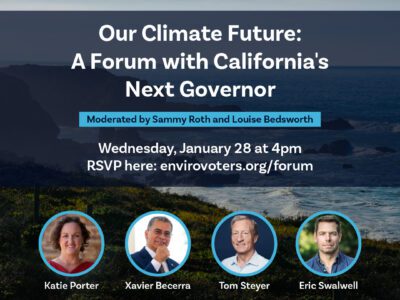Playing fast and loose with reality
How the US Supreme Court’s recent decisions enable greater reliance on “alternative” facts
As the U.S. Supreme Court has moved into an era of second-guessing federal administrative agencies to an extent that we have not seen in 80 years, it has delivered yet another blow to reliance on accurate facts.
When I served as an administrative law judge for California’s state utility regulators, my job in each proceeding was to develop a clear and complete factual record to guide the agency’s ultimate decision. My recommended outcome had to be based entirely on the formal record in the proceeding. Where there were contested material issues of fact, parties had the right to a public hearing and an opportunity to cross-examine those who offered the contested facts.
While this process may not have led to a perfect understanding of the facts, it was designed to lean in that direction. And it created a high level of accountability on the part of the decision makers. Even if the commissioners who received my recommended decision disagreed with my take on the issues, they also were obligated to adopt an outcome that was consistent with the formal record. If someone appealed the decision, the agency would literally package up the record and send it over to the court. In this way, an appellate court could determine whether the final decision was arbitrary, or inconsistent with the record.
In a world where the highest court refuses to defer to the judgments of expert agencies, there is a reduced likelihood that well-tested facts will rule the day. That is because the U.S. Supreme Court habitually issues decisions that rely on facts as the individual justices see them – based perhaps on their own life experiences or on statements made in amicus briefs filed by outside groups or individuals that are not formal parties in the particular case. There is no fact-checking, no cross examination. There is nothing to keep the Court from relying on misleading or inaccurate information.
This problem is not new. Consider, for instance, New State Ice Co. v. Liebmann, 285 U.S. 262 (1932) – the famous case in which Justice Louis Brandeis (in his dissent) talked about the benefit of allowing one state to try out a new policy or program that will either provide a good example for other states or contain the ill effects of a bad policy. In New State Ice, the majority concluded that there was no justification for the State of Oklahoma to regulate entry into the ice delivery market, especially since there were electric refrigerators available that could do the job even better. The problem with that assertion was that at the time, in the middle of a devastating economic depression, only a small fraction of consumers were able to enjoy the benefits of electric refrigeration.
For a more recent example, consider New York v. Federal Energy Regulatory Commission, 535 US1 (2002) – a case that pondered how far federal agencies can go in regulating electric transmission services. Writing for the majority, Justice Stevens declared that based on current technology, it is possible for a “customer in Vermont [to] purchase electricity from an environmentally friendly power producer in California…” Well…no, it is not possible and a failure to understand that fact reflects a more significant failure to understand how the electric grid works.
Although this informal relationship with facts has been going on for some time, what is different now is that the courts are backing away from reliance on what the agencies have to say and showing a greater willingness to substitute their own wisdom for that of the expert agencies that are obliged to carefully develop and understand the actual facts.
The only answer — assuming that Congress doesn’t act to enhance reliance on expert agencies — is for those agencies to be even more diligent about bringing key facts to light and consistenly incorporating them in their ultimate reasoning.







Reader Comments